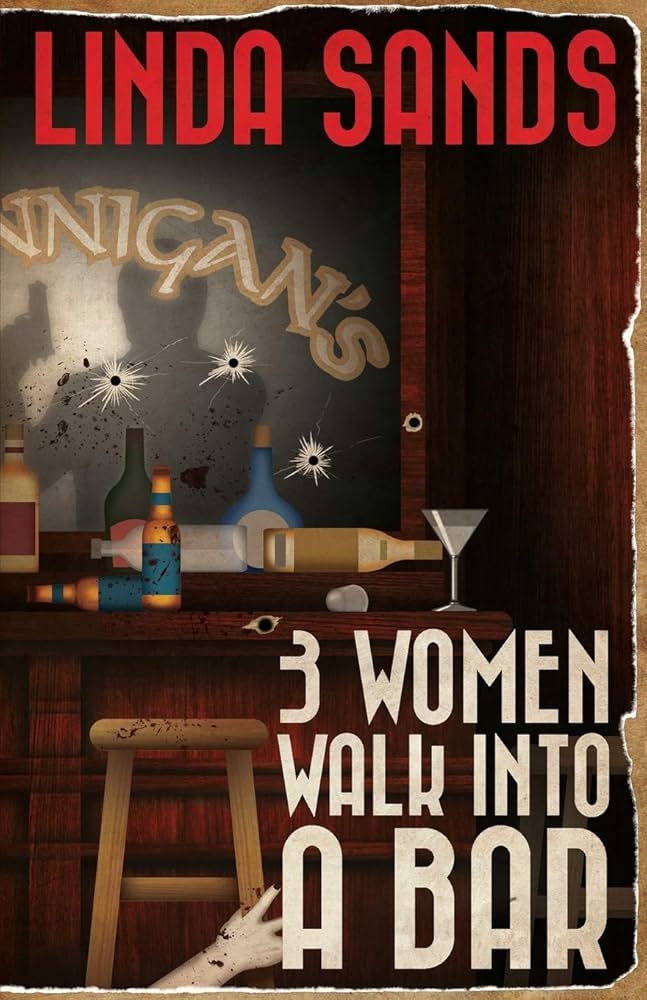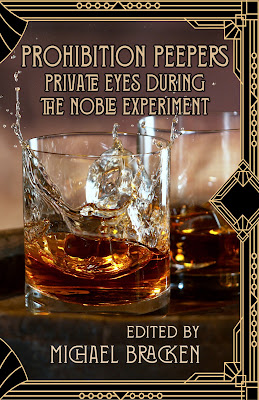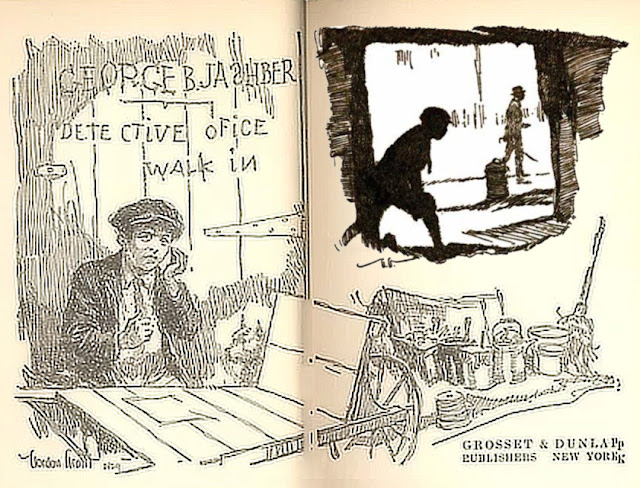- Denise Mina, The Second Murderer
 Great speech, right? It's Anne Riordan talking to fellow P.I. Phillip Marlowe in a scene written by Scottish writer Denise Mina. Can you imagine the girl reporter Anne Riordan of Farewell, My Lovely talking like that to Marlowe in the first place, and him just accepting it, in the second? That’s just one of the many differences between Raymond Chandler’s original take on these characters, and Denise Mina’s successful update of them in The Second Murderer, the first Marlowe novel commissioned by the Chandler estate, to be written by a woman.
Great speech, right? It's Anne Riordan talking to fellow P.I. Phillip Marlowe in a scene written by Scottish writer Denise Mina. Can you imagine the girl reporter Anne Riordan of Farewell, My Lovely talking like that to Marlowe in the first place, and him just accepting it, in the second? That’s just one of the many differences between Raymond Chandler’s original take on these characters, and Denise Mina’s successful update of them in The Second Murderer, the first Marlowe novel commissioned by the Chandler estate, to be written by a woman.
Of course, Mina is hardly the first “successor writer” to take on Chandler’s iconic private eye at the behest of the late author’s heirs. There have in fact been several; some of them decent, all of them not really successful. In my last round on our blog carousel, I laid out the history of approved Chandler sequel novels, with brief commentary on how authors such as Robert B. Parker, Benjamin Black and Lawrence Osborne fared in their attempts to bring Marlowe and his world to life. If you’re interested, you can find that entry here.
I also laid down a marker that, in my opinion, Mina’s work surpassed them all. And I stand by that conclusion. Here’s why.
Mina’s Marlowe closely resembles Chandler’s original, but is hardly a carbon copy, and definitely not some sort of slavish homage. She gives us Marlowe’s familiar, abiding righteous anger at the injustice inherent in daily life in 1930s/40s Los Angeles. Also making frequent appearances are the wisecracks Marlowe so often deploys as part of his attempts to cope with the injustice he sees all around him. These are a mixed bag. Chandler’s humor rarely missed (“He looked about as inconspicuous as a tarantula on a piece of angel food cake.”), and Mina’s wisecracks, when they land, stand up by comparison (“Chrissie Montgomery was easier to find than an optimist in a casino.” “He looked like a headache in a suit.” “The windows were small and many and a heavy roof hung over it all like a furrowed brow.”), but when they don’t land, they really don’t (“Her laugh had a tinny rattle now, sharp edged, like a comedian’s wife planning her divorce during a live show.”), mostly because it feels like there's an element of trying too hard about them.
As with Chandler's best work, the city of Los Angeles itself acts as another character, well-developed and deftly fleshed out:
A mid-September heatwave had descended on the city. Brittle heat rolled down from parched hills, lifting thin dust from roads and sidewalks, suspending it in the rising air and turning the sky yellow. Sounds became crisp and metallic. Everywhere people were gliding along through a gritty yellow fog, mean and squinting, spitting on sidewalks, waiting for the heat to break.
Avid Chandler fans will note how deftly the above passage calls to mind the famous opening paragraph for Chandler's short story "Red Wind," first published in Dime Detective in January, 1938, a little more than a year before Marlowe's full-length novel debut in 1939's The Big Sleep:
There was a desert wind blowing that night. It was one of those hot dry Santa Anas that come down through the mountain passes and curl your hair and make your nerves jump and your skin itch. On nights like that every booze party ends in a fight. Meek little wives feel the edge of the carving knife and study their husbands' necks. Anything can happen. You can even get a full glass of beer at a cocktail lounge.
A comparison of the two passages strikes me how skillfully Mina evokes Chandler's descriptive prose without trying to closely duplicate it. It's the difference between an homage written by an author who has clearly been influenced by the original, and a true "pastiche," little more than a copy.
The similarities don't end there. As with The Big Sleep, there is a wealthy, aged, dying client. But where General Sternwood in The Big Sleep is a likeable old cuss, The Second Murderer's Chadwick Montgomery is not. At all. Both rich old men have rebellious daughters, both families possess secrets they are loathe to have exposed to the light of day.
There are a plethora of other sly references to the original novels. My personal favorite among them is Mina's cleverly naming one of the city's seedy residential hotels the "Brody," an obvious reference to the Chandler character of Joe Brody, the "half-smart" blackmailer so dramatically gunned down halfway through the action of The Big Sleep. A close second was Mina's use of the famous Bradbury Building, renamed the "Belfont" by Chandler when he also made use of it as a setting for part of his third novel, The High Window.
But it's not just the similarities to the original material that make The Second Murderer so compelling. It's also the differences.
The original Marlowe comes across to modern readers as such an outright misogynist and downright homophobe that passages revealing him as such have become the stuff of cliché. As such an update to the character is not only called for–and I say this as a lifelong Chandler fan–but welcome.
Mina's Chandler isn't some "woke" construct. He simply reserves judgement, where Chandler himself always seemed unable to. He's still hardly the driver of the neighborhood Welcome Wago, as demonstrated in this scene where he and Riordan visit the home of an LAPD homicide detective with four annoying school-aged sons, all trying to block them from entering:
'Good morning, gentlemen,' said Riordan.
The oldest boy conceded the stick to the dog and stepped through a carefully tended flowerbed to get into her way.
'What do you want here?' he said. 'Father has been told not to bring his underlings to the door.'
She looked at him, 'We don't work for your father.'
He looked around at his rat-fink brothers. 'Are you from the school?' He wasn't going to let us pass him, not without answers.
'Son, we're here to see your daddy,' I explained carefully. 'So git. Because if you don't git I'll get angry and you'll be picking little tiny bits of your pug-ugly face out of that flowerbed over there.'
The boy did git, which was judicious of him. He was used to talking down to people who worked for his father but I like to think I extended his repertoire of engagement with underlings that day, perhaps in a way that was useful. We walked up to the door.
'Father of the year over here,' said Riordan. 'Is it snotty kids you hate or all kids?'
'I don't hate kids. I hate people.'
And then there's the character of Anne Riordan herself. As shown above, this Anne Riordan is still a "nice girl," but is also a business owner (started her own detective agency when Marlowe earlier rebuffed her request to apprentice with him), and more than equal to the task of fencing/flirting with Marlowe himself. As such she is a welcome update to the original.
It's hardly all positive, though. Nobody is perfect, and novels, being human-made constructs (at least for the time being), are also not perfect. The single aspect of Mina's approach to the character and world of Marlowe that consistently pulled me out of the story is something I can't recall Chandler ever employing in his work (and something of which, as both a reader and a writer, I am most definitely not a fan), a very particular type of foreshadowing, as with this final sentence of one of the novel's early chapters:
The next time we looked each other in the eye it would be over the body of a dead man.
It's not something Mina does more than a handful of times, but it occurred enough for me to make note of it. Hence my mentioning it here. But even mentioning it, I didn't find it jarring enough to make me give up on the book.
When I first heard the premise for The Second Murderer, I wondered whether it would be the sort of bait and switch that the latest season of the Disney Plus series The Mandalorian has been (the title character is barely a factor in this season. It's clearly all about reintroducing the character of Bo Katan...Uhhh anyway, I digress). You know, it's ostensibly a Phillip Marlowe novel, but in reality it's an Anne Riordan novel, with Marlowe doing enough and showing up enough to serve as literary window dressing.
It definitely wasn't. This is a Marlowe novel. And it's a damned good one. Well worth your time. I enjoyed it start to end.
And now I'm wondering what enticement it would take for Denise Mina to once again agree to take us to 1940s Los Angeles. This time in a story featuring Anne Riordan as the main character, perhaps.
What do you think? Let us know in the comments below. And for me, I would definitely read that book!
And that's it for me this time around. See you in two weeks!


































